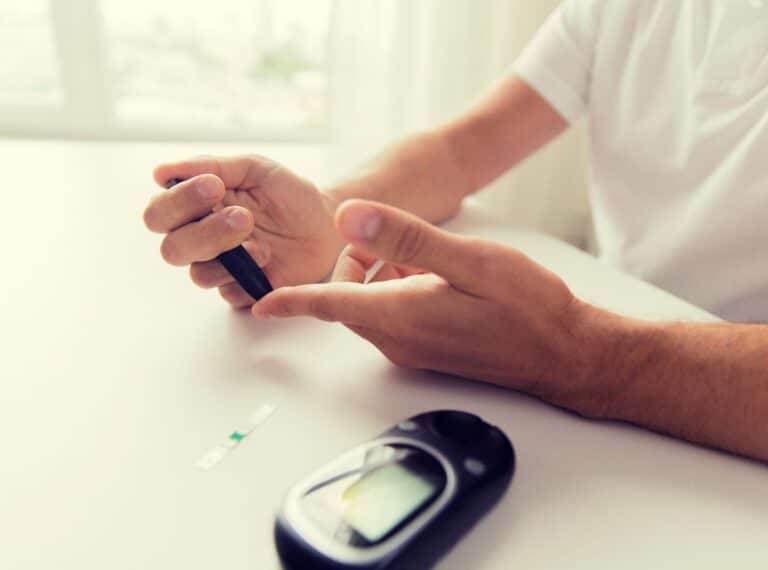5 Weight Gain Tips for Type 2 Diabetes
Diabetes is a serious illness that’s affecting the majority of people over 40. While there are steps that you can take to prevent yourself from diabetes, you can never recover from it once you are diagnosed with diabetes. People presume that diabetics are overweight and obese. While this may be true for some, most of the diabetic people suffer from weight loss. The thing is that people often experience sudden weight loss before they know they have diabetes. Sudden weight loss is a major symptom of both type 1 and type 2 diabetes. You should visit a doctor if you experience unexpected sudden weight loss. In this article, we’ll share simple weight gain tips for people with t2d diabetes.
Reason for diabetes weight loss
Diabetes is caused by insufficient insulin secretion by your body, so your blood sugar level is not controlled properly. When insulin is not secreted enough by your body, the glucose present in your blood can’t be properly converted into energy for your cells. At this time, your body starts burning the reserved fat and muscle for energy when it needs it. This causes sudden weight loss for diabetic people. It is common for people with type 1 diabetes who experience this symptom before they are even diagnosed. It also affects people with type 2 diabetes. You should keep an eye on your weight using digital weighing scale.
One should not treat sudden weight loss lightly as it may cause serious problems than diabetes itself. You will start to feel fatigued and may even get dizzied at times. It really affects your physical as well as your mental health. So you should always try to keep your weight at a constant level. Now, let us see some tips to gain weight for people with diabetes.
5 Weight gain tips for diabetic people
Gaining weight may be easy for some people. You just have to eat a lot than you used to. But it is not so simple for people with diabetes. You have to gain weight, but should not let your glucose level get out of control by eating more. It is recommended to visit a dietitian or doctor before you go on a diet plan to increase your weight. Now, let’s see 5 weight gain tips that had been lost due to diabetes.
Determine your goal and work towards it
You first have to find your ideal goal weight. Your doctor will give you specific details regarding the ideal weight that you have to reach. You can also set a weekly weight goal that you can reach. Use a smartphone app or diary to track your progress. You should also know about your ideal BMI so that you can work towards it. If you know about this information, then you can get the number of calories that you should intake daily to reach your ideal weight and BMI. This may not seem like an ideal tip to gain weight. But setting a goal, and tracking the progress really motivates you in achieving it.
Eat less but more frequently
Taking food three times a day may reduce your appetite and gives your body time to spend all the calorie consumption. So instead of taking bigger meals three times a day, you can try eating frequent meals six times a day. It may take some time to get used to this routine, but eating calorie-rich food frequently will help you to gain weight a lot. You can plan out your meals daily and stick to it. Eating frequent meals will increase your appetite while also making it more manageable.
Increase your carbohydrate amount
There is nothing like carbohydrates to increase your weight. Carbohydrates will spike your glucose level, so opt for lower-glycemic carbohydrate food items. Food items such as rice, bread, and pasta are rich in carbohydrates but they also will increase your glucose level as they are easily metabolized by your body. Instead of these items, you can choose oatmeal, yams, whole-grain bread, brown rice, and whole-grain pasta for your meals. It is also rich in carbohydrate but it doesn’t let your glucose level increase much.
Not only carbohydrates, but you should also increase your lean protein intake amount. You can add chicken, boiled eggs, fish, and other plant-based sources in your meal. It will increase your weight significantly. When dealing with foods rich in carbohydrates and proteins, you have to be careful as they will also increase your glucose level if not monitored properly.
Include more Healthy Fats
Fat increases your weight but is generally considered bad for diabetes people. You can opt for healthy fats in your meal which doesn’t affect your health. Monounsaturated and polyunsaturated fats are considered healthy, so you can include them in your meals. They will significantly increase your weight as they have more calorie value per gram. Food items like avocado, sunflower oil, seeds, nuts, and fish will increase your weight by giving you healthy fat. At the same time, do not go for unsaturated fat. They will increase your weight but will harm your body and organs.
Resistance Training
Exercises generally will decrease your weight, but resistance training exercises will increase your muscle mass. It leads to weight gain. You might have lost a lot of muscle mass caused by diabetes, and you have to compensate it by doing more resistance training. Lifting weight and using a resistance band will increase your lean muscle in a healthy way. You can also do other exercises like cardio, but it consumes more calorie and you have to compensate for it. Doing exercise will also increase your appetite, so you can eat a lot of calorie-rich food after an intense training session to increase your weight. Resistance training is a good way to increase your weight by increasing your muscle mass instead of your fat level.
Conclusion
Yes, it is difficult for diabetes people to increase their weight in a healthy way. But if you follow the above-listed steps, you can easily increase your weight without increasing your glucose level. Whatever steps you may follow to increase your weight, you should consult with your doctor first and proceed with it. Hope you got some good information on increasing your weight in a healthy way with this post.







